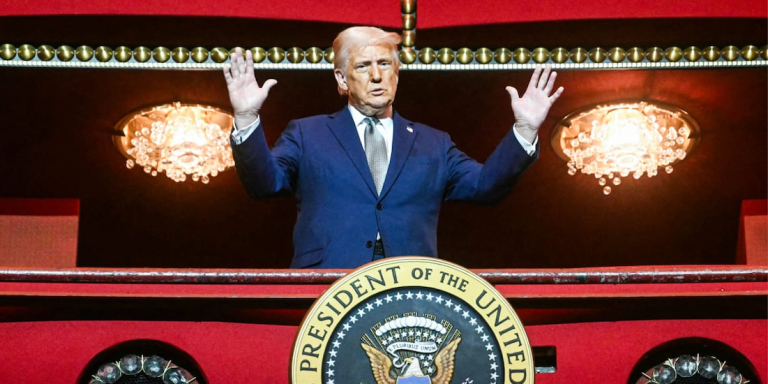
Critics warn the “One Big Beautiful Bill Act” favors corporations and the rich while cutting social programs
New York, N.Y. — The U.S. Congress narrowly passed President Donald Trump’s sweeping tax and spending bill on Thursday, sparking fierce backlash over its disproportionate benefits for wealthy Americans and corporations while slashing funding for healthcare, food assistance, and clean energy initiatives.

The One Big Beautiful Bill Act, approved in a 218-214 House vote, now heads to Trump’s desk for final approval, marking a major victory for his second-term agenda.
The legislation extends Trump’s 2017 tax cuts, introduces new exemptions for tips and overtime, and allocates billions for border security and defense spending.
However, critics argue the bill’s $4.5 trillion in tax relief overwhelmingly favors the richest Americans, calling it a “Robin Hood in reverse” policy that will deepen inequality and balloon the national debt.
As one person commented on social media, “It is interesting that some coined the counter-intuitive redistribution of income to the elites “Robin Rood in Reverse.” Robin Hood already was the reverse of something. That something is called monarchy.“
Wealthy and Corporations Win, Low-Income Families Lose

The bill’s most contentious provisions include deep cuts to Medicaid and the Supplemental Nutrition Assistance Program (SNAP), tightening eligibility rules and imposing stricter work requirements.
The Congressional Budget Office (CBO) estimates 11.8 million Americans could lose health insurance by 2034, while over 3 million may be cut off from food stamps.
An analysis by Yale University’s Budget Lab found that the bottom 20% of earners would see their after-tax incomes drop by 2.9% (about $700 per year), while the top 20% would gain 2.2% (roughly $5,700 annually).
Democratic Senator Bernie Sanders blasted the bill as a “gift to the billionaire class,” noting the richest 1% would receive $975 billion in tax breaks, with an additional $211 billion in estate tax exemptions for the top 0.2%.
Hospitals also oppose the bill, fearing reduced Medicaid funding will force service cuts and closures. Rick Pollack, CEO of the American Hospital Association, warned of dire consequences for healthcare access.
National Debt Could Skyrocket, Warn Economists
The bill’s $3.3 trillion projected addition to the federal deficit has raised alarms among economists and market analysts. The U.S. national debt, already at a staggering $36 trillion, could face further strain, potentially triggering higher interest rates and increased borrowing costs for consumers and businesses.
JPMorgan Chase CEO Jamie Dimon cautioned that unchecked deficits may unsettle investors, telling FOX Business, “At some point, the bond markets are going to struggle.”
Even some Republicans, like Kentucky Representative Thomas Massie, voted against the bill, calling it fiscally irresponsible. Tech billionaire Elon Musk, once a Trump ally, condemned lawmakers on X (formerly Twitter), writing, “Every member of Congress who campaigned on reducing spending and then voted for this debt increase should hang their heads in shame!”
Clean Energy Incentives Axed, Fossil Fuels Favored

The bill also delivers a major blow to renewable energy, eliminating tax credits for electric vehicles (EVs) and energy-efficient home upgrades.
While a proposed excise tax on wind and solar was dropped, key clean energy incentives will be phased out by 2027, jeopardizing thousands of projects and jobs.
According to Energy Innovation and Wellesley College, the changes could kill 4,500 clean energy projects, risk hundreds of thousands of jobs, and raise energy bills by billions within five years.
Joanna Slaney of the Environmental Defense Fund slammed the bill, saying, “It favors burning more fossil fuels while ignoring the harm to people’s lives.”
What’s Next? Legal Challenges and Public Backlash
With Trump expected to sign the bill, opponents are gearing up for legal battles and protests. Advocacy groups warn of lawsuits over Medicaid cuts, while progressive lawmakers vow to push for repeal efforts if Democrats regain Congress in 2026.
As the debate rages, one thing is clear: the One Big Beautiful Bill Act will reshape America’s economic landscape—with winners and losers sharply divided along wealth lines.